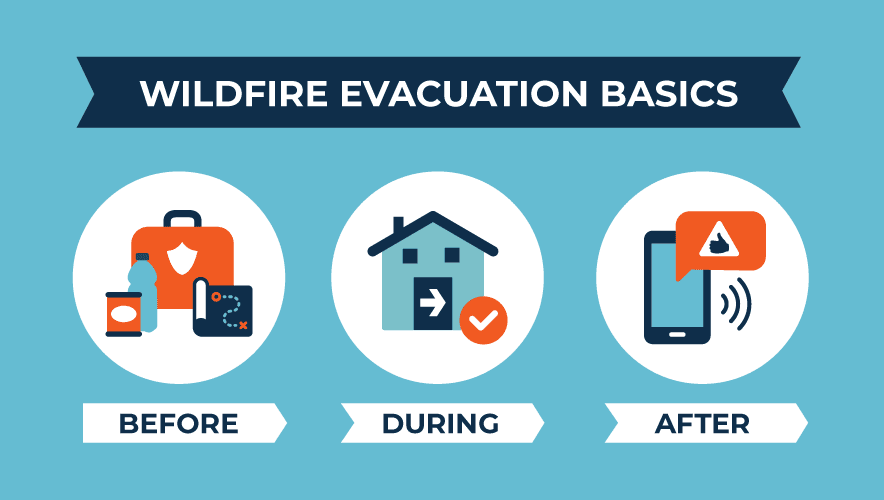Staying Ahead of a Crisis with a Strong Emergency Evacuation Policy
On the precipice of the first ground war in Europe in more than a generation, companies operating in Ukraine in February 2022 were simply unprepared for the worst-case scenario. As the first Russian tanks rolled into eastern Ukraine in late February and options to evacuate expats and non-essential personnel by air deteriorated, Global Guardian’s network of on-the-ground teams began to conduct evacuations and ensure companies had the appropriate resources and communication capabilities.
Since the onset of the invasion, thousands of individuals and their families in the region have been evacuated to safety. Now, companies are learning from the lessons of Ukraine and, importantly, that threats to their employees can happen anywhere and anytime.
As business travel approaches pre-COVID-19 pandemic levels and companies become more integrated within a national and international business ecosystem, employees are increasingly dispersed—they are no longer concentrated in just one city or even one country. While companies expand their presence at home and abroad, however, they are also reckoning with a multifaceted portfolio of threats to their employees, from geopolitical crises to natural disasters to civil unrest.
At any moment, companies must be prepared for a crisis that demands the mass evacuation of their employees no matter where they are in the world. In turn, corporate security and human resources leaders must fully understand and vet their policies and providers to guarantee the full protection of all employees.
Evaluate Your Existing Coverage
The complex and ever-changing nature of business travel necessitates a reevaluation of evacuation policies.
As companies consider their funding priorities for the upcoming fiscal year, business leaders should determine whether their existing coverage—insurance and/or duty of care programs—is providing true protection for employees who might need to be evacuated en masse. Companies should have the capacity to provide end-to-end coverage throughout an evacuation process. That means preparation even before a crisis occurs, strong communication and transportation capabilities during a crisis, and a follow-up plan to ensure affected individuals can return to their lives after a crisis.
Today, corporate travel and insurance policies are an imperative component of a company’s benefits offerings. But it is important for the security and human resources leaders who manage those benefits to consider potential limitations or restrictions embedded within their current policies.
A robust evacuation policy for employees and business travelers requires several factors, including international coverage, effective response plans that can be deployed immediately, and compensation for affected individuals. In turn, lacking one or more of these components can dramatically weaken an evacuation policy’s effectiveness.
In August 2021, as Kabul, Afghanistan, fell to the Taliban, the United States evacuated large numbers of American and Afghan nationals in an operation that has since been criticized as having been botched. Details on the operation suggest U.S. officials were unprepared to quickly move those individuals, had not fully determined exit points, and were stymied by indecisiveness. While governmental responses to the Taliban takeover were muddled with shortcomings, duty of care and private security providers played a larger role in mitigating those gaps and safely transporting large numbers of people out of Afghanistan.
Concurrently, those three components are a minimum standard and do not eliminate other limitations which might arise.
For example, many companies with a global presence tend to offer traditional evacuation policies that do not cover certain geographic regions or areas deemed to be “high-risk,” such as combat and disaster zones, even though these areas are the most likely to experience mass evacuations.
Latin America and the Caribbean (LAC) are home to high-risk areas where natural disasters such as floods, hurricanes, and earthquakes are a common concern. The region experienced more than 1,200 disasters between 2000 and 2019, and in turn, organizations in the region have faced a higher frequency of mass evacuations. In high-risk regions like the LAC, where infrastructure is often under-developed and geography creates additional constraints, companies must allocate greater attention to factors such as damage assessments, supply distribution networks, and, in the case of Caribbean islands, the role of maritime vessels and ports in evacuations.
Ultimately, organizations must ask: did their insurance or current duty of care provider effectively evacuate their employees out of harm’s way during recent global disruptions? If not, corporate leaders should consider changing their insurance broker and/or duty of care provider immediately as these global challenges are only accelerating in frequency and scale.
Prioritize Relocation Strategies
The Russian invasion of Ukraine caught many companies with a business presence in the region off guard and undoubtedly placed their employees at risk or in need of an evacuation protocol. In particular, the war created additional risks for companies as contested control over Ukraine’s airspace, and the threat of Russian aerial attacks made aerial evacuations practically impossible.
The lack of direct routes to western Europe and the United States also required individuals to first be evacuated to a neighboring country such as Romania or Poland. Moreover, the presence of Russian military assets across Ukraine and destruction of supply and communication lines greatly increased the difficulty of evacuating large groups of people.
The Russia-Ukraine war unequivocally demonstrated how companies with a regional presence in eastern Europe needed an effective and reliable option to relocate individuals following incidents that threatened employee safety and business operations.
But high-risk locations or regions facing conflict are not the only areas where a mass evacuation could take place. Puerto Rico, which experienced two catastrophic hurricanes between August and October 2017, highlighted the impact of extreme weather patterns and natural disasters on organizations in disaster-prone areas. Global Guardian supported affected organizations with satellite communications because almost all communication infrastructure on the island was destroyed, medical aid, and transportation options to evacuate more than 1,500 individuals off the island.
One crucial limitation within many business travel accident (BTA) offerings, however, is that their relocation services tend to prioritize the cheapest or most convenient option to evacuate individuals following an incident. This can result in individuals being transported to a location that lacks the necessary infrastructure, facilities, and medical expertise to meet their needs.
A truly effective evacuation policy should guarantee that employees can be evacuated in large numbers no matter where they are located, and without compromising their needs during and after the evacuation. That entails coordinating with external stakeholders, arranging transportation, and facilitating communication with the individual’s family and employer.
Additionally, business leaders need to truly know who the response provider is on the other end of their policies. Companies can deepen those relationships and better understand gaps in existing coverage by working with those external stakeholders through tabletop exercises, crisis scenarios, and response tests.
Build Trusted Partnerships
Business leaders should also consider direct partnerships with duty of care providers, which many large companies already participate in. Providers can bring additional resources and expertise to navigate the challenges of international travel, such as obtaining landing permits and utilizing ground forces to transport larger groups of individuals to and from the aircraft.
As travel restrictions and border closures due to COVID-19 went into effect in March 2020, for instance, our emergency evacuation services quickly and safely evacuated 144 Americans out of Roatan, Honduras, where they were stranded during a lockdown. The request came from private U.S. citizens, and in response, Global Guardian’s on-the-ground response teams of personnel from a range of intelligence and law enforcement backgrounds were deployed with large ground transportation vehicles capable of moving those individuals to commercial ports of entry. Moreover, Global Guardian maintained communication with those individuals through GPS beacons, satellite-based phones, and mobile apps.
Whether an enterprise is partnering with a provider or building an internal team, it is important to have a global team of professionals capable of managing an emergency while offering full-spectrum protection to employees.
Communicate Across the Enterprise
Moreover, when an emergency or crisis does emerge, companies should have a clear communication plan in place.
Employees should be informed about the evacuation policy and the procedures to follow in case of an emergency. This includes having a designated point of contact for employees to communicate with in case of an emergency and providing clear instructions on how to reach out to that individual. This can help to ensure that employees are well informed and prepared in case of an emergency, which can greatly reduce the risk of confusion and chaos during an evacuation.
As more and more companies find themselves facing complex emergencies or crises which threaten the safety of their employees, it’s time for business leaders to rise to the challenge. By assessing current policies, deciphering any gaps in coverage, and partnering with duty of care providers, their enterprises can better ensure that employees are safe and well-informed in case of an emergency.
Dale Buckner is the CEO of Global Guardian, a McLean, Virginia, based global security firm that provides its clients with access to a comprehensive suite of duty of care services.
© 2023 Dale Buckner, Global Guardian









